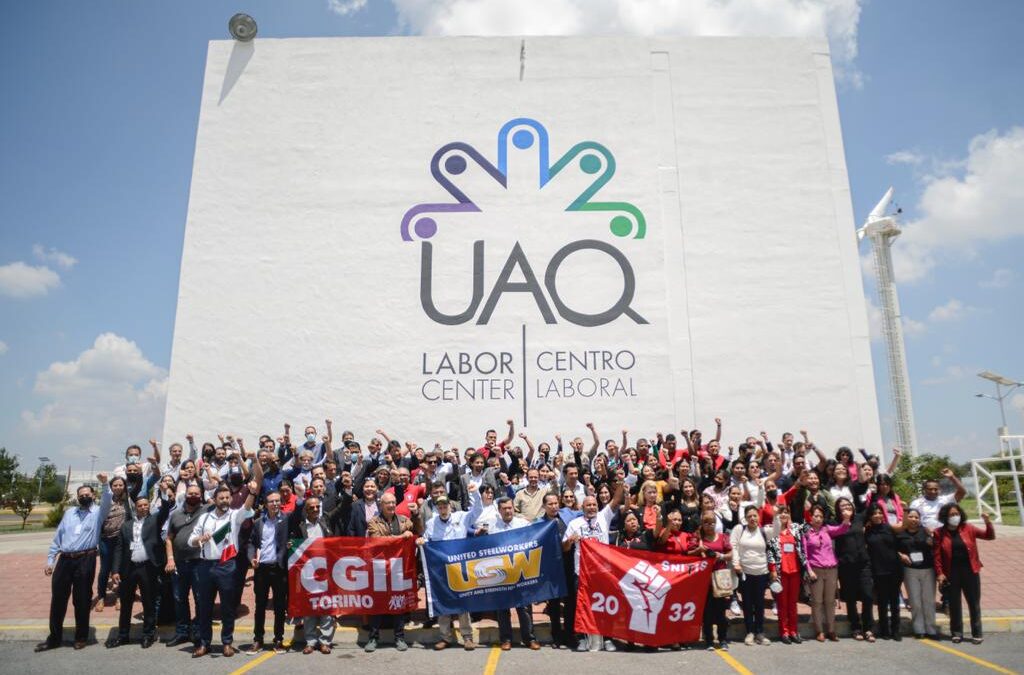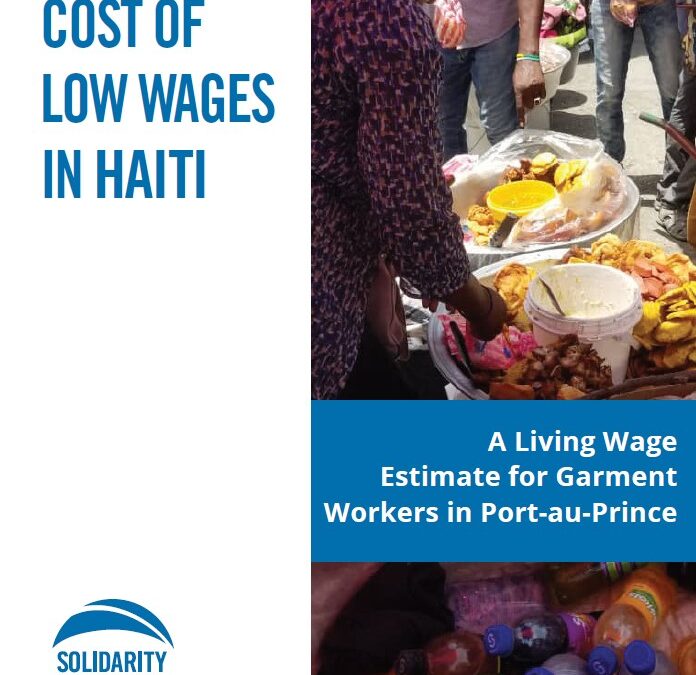
Sep 13, 2022
This September 15, International Day of Democracy, people in more and more countries are faced with growing authoritarianism and shrinking space to freely participate in civil society.
Yet authoritarian regimes can be countered and democracy fostered through the actions of vibrant labor movements, according to two lawyers and guests on the latest episode of The Solidarity Center Podcast.
“There’s extensive research and empirical studies on the working class and unions and the critical role that they’ve played in forging and defending democracies,” Cornell University law professor Angela Cornell tells Podcast host and Solidarity Center Executive Director Shawna Bader-Blau. “The organized working class was the primary carrier of democracy, playing a decisive role in the forging of democratic regimes and the most consistently pro-democratic force, which pushed forward and fought for democracy against the resistance of other class actors.
Unions, in Coalition, Advance Democracy in Colombia
A recent example is unfolding in Colombia, where a diverse coalition of unions, young people, members of Black and Indigenous communities and others joined together to craft changes to the country’s laws that reflect the needs of workers and all communities historically marginalized by the government. Their efforts resulted in the election of a progressive slate of candidates in August, including Francia Márquez, a former housekeeper, union member and Colombia’s first Black vice president.
“We had focused so many of our efforts on changing, on getting to pick something different in over 200 years of our republic,” says labor lawyer and union activist Mery Laura Perdomo. “We focused on taking the streets. Every union became essential where the campaign was discussed. They became forums for the discussion of politics, on how to change the country. In every square you would see students talking to the citizens about the different candidates, about the different political programs and why this was important.”
Perdomo, who is on staff with the Solidarity Center and International Lawyers Assisting Workers (ILAW) network, and Cornell, who recently co-edited the Cambridge Handbook of Labor and Democracy, describe how unions’ role in reducing economic inequality, strengthening the social safety net and uniting diverse groups create more democratic outcomes.
Listen to the full episode.
MORE SOLIDARITY CENTER PODCASTS!
Listen to this episode and all Solidarity Center episodes here or at Spotify, Amazon, Stitcher, or wherever you subscribe to your favorite podcasts.
Download recent episodes:
Sep 9, 2022
Haiti garment workers should be paid four times their current salaries just to keep pace with the cost of living, a new Solidarity Center study has found.

Sep 2, 2022
A new Labor Center in Mexico will advise workers about their rights and how to mobilize and organize unions and collectively bargain. The Labor Center, at the Autonomous University of Querétaro in central Mexico, is supported by the Solidarity Center and the UCLA Labor Center.
“The aim is to strengthen and promote the full recognition of labor rights, freedom of association and organization, and the democratic participation of workers through research, linkage and accompaniment,” said Labor Center Director Dr. Javier Salinas García. Salinas spoke at a recent Solidarity Center event in Mexico to announce the opening.
The Labor Center comes three years after Mexico’s government announced a series of comprehensive labor reforms to establish a democratic unionization process, address corruption in the labor adjudication system and eradicate employer protection (“charro”) unions prevalent in the country.
The Labor Center is “a way to respond to the needs of the situation,” said Beatriz García, Solidarity Center Mexico deputy program director.
“I think we all agree that Mexico is going through a historic moment. The labor reform responds to the demands that have been the objectives of the struggle of many workers for years, for decades, and reflects some positive practices of the independent unions,” she said.
The event featured a panel of independent union members and leaders who discussed the future of the labor movement in Mexico in the wake of historic labor law reforms.
Panelists explored the role that democratic and independent trade unions in promoting labor reform implementation in Mexico three years after the 2019 Labor Reform and negotiations of the United States–Mexico–Canada Agreement (UMSCA/T-MEC).
Speakers shared how they are using the tools of labor reform to organize on their worksites.
“We are the delegates, and we call our colleagues to share information about the Union League,” said Sonia Cristina García Bernal. “We have helped colleagues who were told they were going to be fired without severance pay. We have been able to get them severance pay. We have been able to get them rehired.”
“After these three years, the tool that we use the most is fast response mechanisms,” said Imelda Guadalupe Jiménez Méndez. “This has been a very important tool.”
In addition to Beatriz García, speakers included: Imelda Guadalupe Jiménez Méndez, Secretary for Political Affairs, the Miners Union (Los Mineros); Julieta Mónica Morales, General Secretary, Mexican Workers’ Union League (Liga Obrera Mexicana); Rita Guadalupe Lozano Tristán, Mexican Workers’ Union League (Liga Obrera Mexicana); Alejandra Morales, General Secretary, Independent Union of National Workers in the Automotive Industry; and Sonia Cristina García Bernal, Special Delegate, Mexican Workers’ Union League (Liga Obrera Mexicana).

Sep 1, 2022
Haitian garment workers face increasing difficulty in covering basic expenditures as prices soar while wages hover far below the cost of living.
Download in English and Haitian Creole.

Aug 23, 2022
Workers demanding relief from inflationary pressure on wages will launch a general strike on Thursday unless the Kosovo government grants public sector workers an emergency wage increase of almost $100 per month. This proposed amount will provide most public sector workers—including doctors and nurses—with an immediate 20 percent increase in lieu of a long-delayed wage law, says the Union of Independent Trade Unions of Kosovo (BSPK).
“It is the [failure of] the wage law that obliges us to go on strike,” says BSPK Chairperson Atdhe Hykolli, who announced that the work stoppage will last until the workers’ plea for relief is met.
According to BSPK, Kosovo’s workers and their families can no longer meet their basic needs due to historic inflation. The country’s inflation rate is inching higher each month, reaching a 14-year high of more than 14 percent in June and it increased again in July.
Escalating costs for food and non-alcoholic beverages, housing and utilities, and transportation are the main driver of inflationary pressure on wages in Kosovo. For the 12 months ending in June this year, the cost of transportation increased more than 30 percent while the cost of food and non-alcoholic beverages increased by more than 17 percent. From 2003 through 2021, the country’s inflation rate was less than two percent per year. The average public sector worker’s take-home pay of $542 has not increased since 2021.
“The situation for workers in Kosovo is like those in many countries around the world: Rising costs coupled with stagnant wages is simply not sustainable,” says Solidarity Center Southeastern Europe Country Program Director Steven McCloud.




